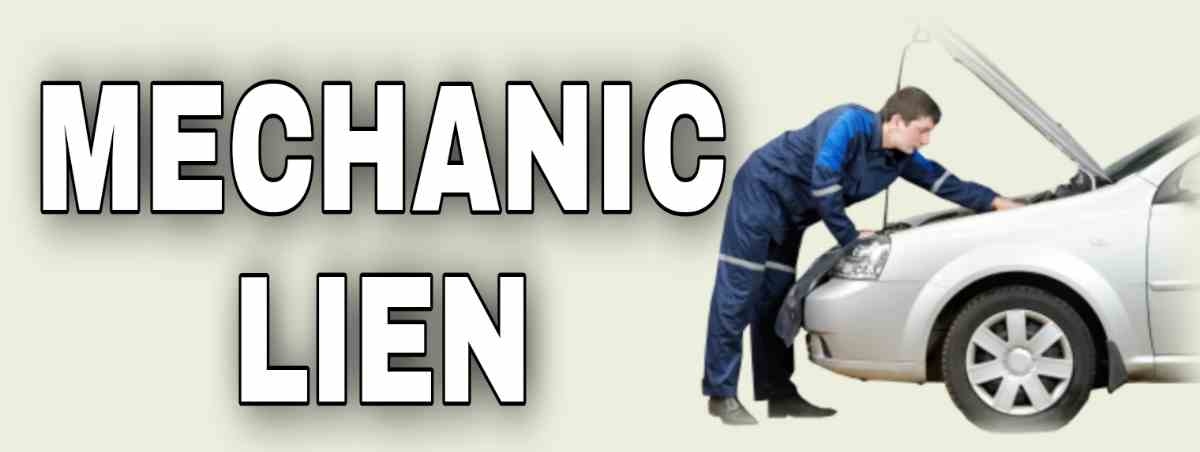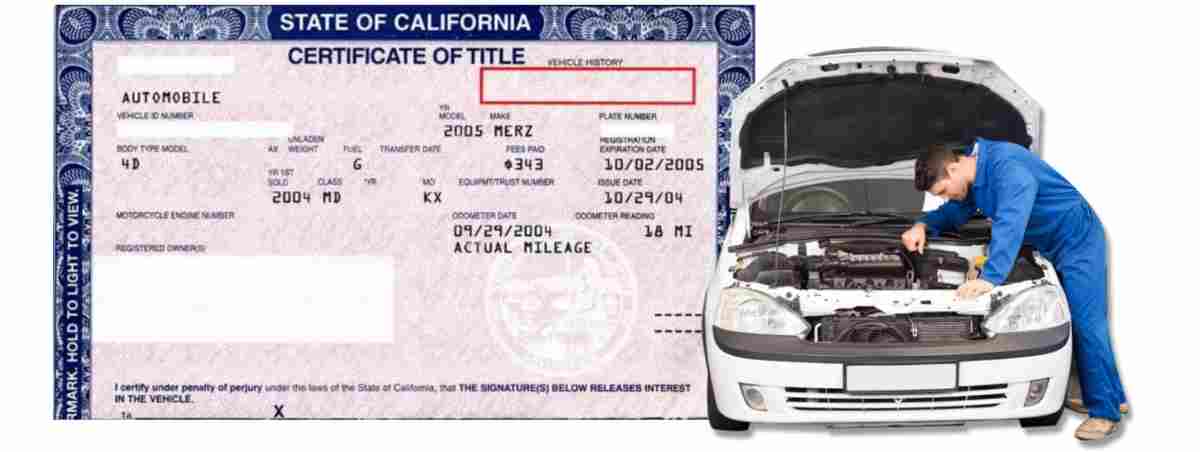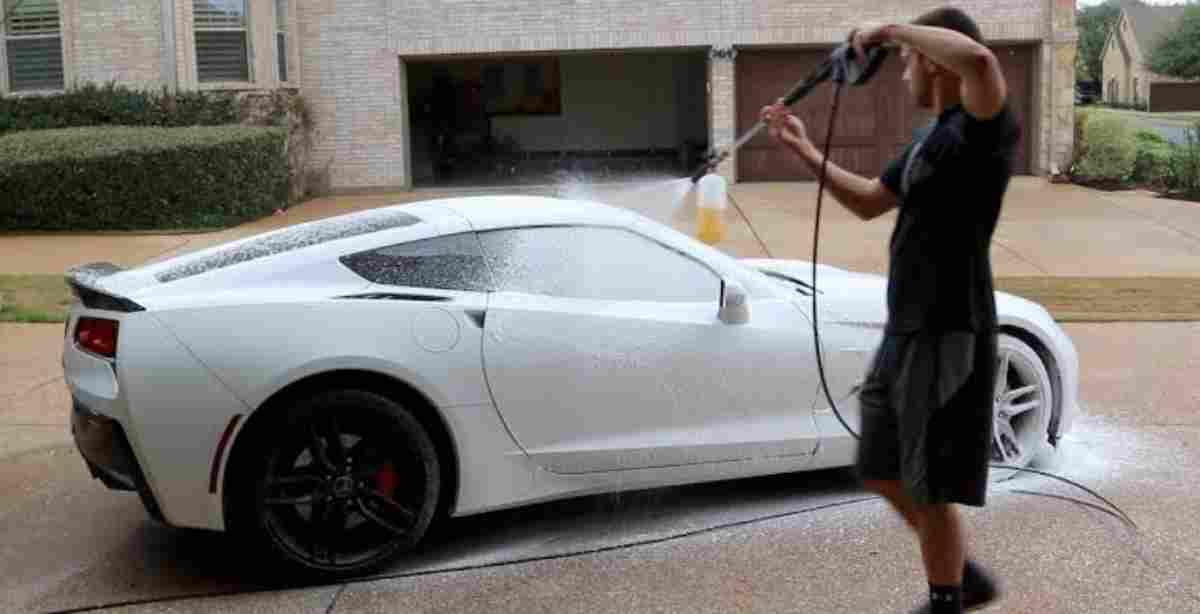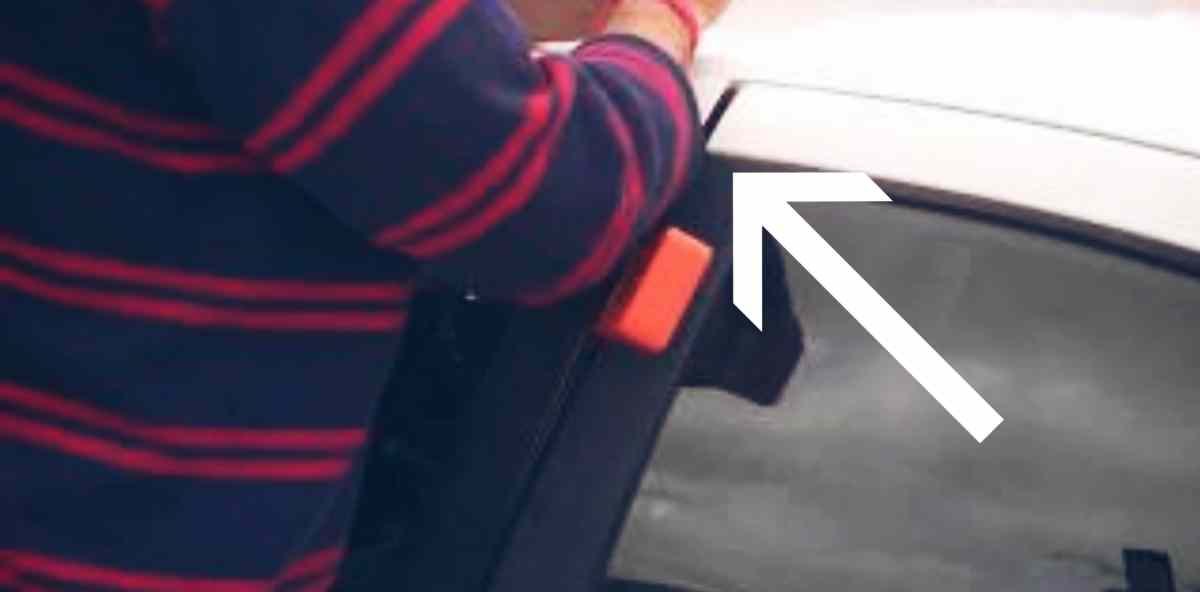“What is a mechanic lien on a car” is one of the most recently trending questions on the internet. Typically, a mechanic’s lien on a car is established against a car by a mechanic, storage, or repair facility if the owner fails to pay the fee.

For instance, some vehicle owners leave, or perhaps, abandon their vehicles in storage facilities for a long period. Of course, the car racks up storage fees in hundreds of dollars, which prompts a storage facility to put a lien on the car. The storage facility, tow, or impound lot can sell the vehicle at a public auction to collect the debt.
In some states, if the value of the auctioned vehicle does not meet the debt value, the car owner must still complete payments. Meanwhile, can a tow yard send you to the collections? Anyways, follow the link to learn. Back to our subject.
What is a Mechanic Lien on a Car?
A mechanic lien on a car is a legal claim placed on a car if the owner does not pay the money owed. A mechanic, for example, can put a lien on a vehicle to request payment for repairs done, including remodeling, replacements, etc.
When a mechanic lien is applied, it is recorded against the vehicle, and if the car with a lien is sold, the lienholder is paid with the sales proceeds. Does a mechanic lien expire? Yes, a mechanic lien expires after a specified period, about 6 years if the lienholder does not begin foreclosure on the car. Moreover, the lienholder will become liable for damages on the car and the original owner can claim their car.
Meanwhile, this brings the question, “can someone sell a car with a lien on it?” No, the original owner can’t sell the car with a lien on it or remove existing lien until they complete their debt. However, per the agreement, the new buyer can assume responsibility of the debt after buying the car before they can register the car in their name and get a license. If the shop or business decides, they can take possession of the car and sell it at auction.
Read More: The story of removing a cosigner from car title.
How Does Mechanic Lien Work?

A mechanic lien, as mentioned earlier, allows a party that is owed to claim on a vehicle. Many people have acquired legal car titles through placing a lien on debtors’ vehicles who would not pay for a job done. The car owner does not also have to return to get the car since the lienholder would possess it until the debt is cleared.
Depending on the debtor’s attitude, the lienholder may have to sell the vehicle to the auction after going through the legal processes, which includes notifying the debtor. If the debtor does not respond after a mail is sent to their last known address, the business or person owed must advertise in the local newspaper (in some states) about the auction of the car, stating the date, location, and time of auction.
The auction will start at what is being owed, and if the original owner of the car shows up, they must bid the amount or higher (if there’re other bidders) to acquire the car. Normally, the highest bidder gets auctioned the vehicle and receives the paperwork in the name of the lienholder.
After the car is auctioned, the mechanic lienholder pays the auctioneer the required fees for the auction process and recovers the bill. Sometimes, the lienholder gets even more money. Meanwhile, you might be interested in the steps to buying a car from the police impound.
How to put a mechanic lien on a car
In this section, you will learn how you can place a mechanic’s lien on a car. Meanwhile, we wrote about the steps to put a lien on any vehicle.
Below are the steps regarding how to put a mechanic lien on a car:
-
Send the Notification
You must notify the debtor with a notification letter by registered mail at least 10 days before the planned auction date for the vehicle. The party to receive your letter may be the original owner of the car, the person who left the car (someone other than the owner), or the Mechanic’s Lien Unit in your state.
Typically, the letter must include the VIN (Vehicle Identification Number), make and model year, an itemized list of fees, a statement about the proposed vehicle auction unless the owner retrieves it before the auction, and the date, location, and time of the planned auction.
-
Advertise the Car on a Local Newspaper
Your state may mandate you to advertise the planned car auction in the local newspaper in the city where the auction would be done. The advert must include the date, place, and time of the auction, and a description of the vehicle to be auctioned, including the VIN, vehicle model, and model year.
In Maryland, you must publish the newspaper ad at least once weekly for 2 consecutive weeks before the auction date. There must also be 7 days between the first and second newspaper ads.
If your newspaper advertisement is incorrect, you must advertise again and send certified letters before you can auction the car.
-
Sell the Vehicle
You must sell the vehicle at public auction at 10 a.m. and 6 p.m., and a licensed auctioneer must be responsible for the auction. Do not sell the car using an online auction (see how to win online car auction). When you sell the car with your mechanic lien, give the new owner all information so that they can register the car in their name.
What You Should Know About Mechanics Lien on a Vehicle
Before you start the process of placing a lien on a vehicle, it must reach 30 days, depending on your state. If the vehicle is a trailer, you must wait for 90 days.
Also, the charges must be supported by a repair authorization as required by your state’s commercial law. There must also be a completed repair order authorized by the original owner of the car or the person who brought it for repairs. You must also describe the work done and the total cost of parts and labor.
You must support a storage charge by a storage contract that the vehicle owner signed or the person who brought the vehicle for storage.
If the owner of the car contests the fee, they can institute an action of replevin in the Circuit Court. When the motor vehicle department is notified about the replevin action, they will not issue a title for the car until the court decides.
Note: You can’t put a mechanic lien on a car that has been abandoned. Contact your local police.
Can You Put a Mechanic Lien on a Car with Title Loan?
Yes, you can put a mechanic lien on a car with a title loan. As a car repairer or any owed party, you have the right to keep possession of the car until the debt is paid off. If you have the vehicle on your premises, nobody can remove it legally without completing the debt. Check out how you can get a title loan.
Ensure to inform the loan company about the debt and sell the car at the auctions only to recover the debt. Whatever amount would be left from the sales proceeds, the lender gets it. The lender typically requests copies of documentation of the repairs and sale documents. A vehicle in a storage facility must also be documented with itemized costs.
Can You Get a Title Loan with Mechanic’s Lien on a Car?
If you have a mechanic lien on your car, you can’t get a title loan. Legally, only the lienholder decides what happens with the car, and a lender would not want to be involved, except the lienholder admits. But then, the lienholder may become liable for the title loan since it’s put in their name.
Nonetheless, as a debtor, you may find a sympathetic title loan company willing to verify the lien and loan amount. They can pay off the loan, securing a lien release, and then give the debtor the remaining funds.
Final thoughts
There you have, a comprehensive answer to your question, “what is a mechanic lien on a car?”
Placing a mechanic lien is not always easy to do. Otherwise, one-third of cars would have one or multiple mechanic liens on them. In some cases, owed parties overlook the debt, and allow more time for the debtor to clear the debt.

![Clever Ways to Beat the Car Salesman [2025 Buyer’s Guide] Clever Ways to Beat the Car Salesman [2025 Buyer’s Guide]](https://sanedriver.org/wp-content/uploads/2020/12/beat-a-car-salesman-211x150.jpg)
